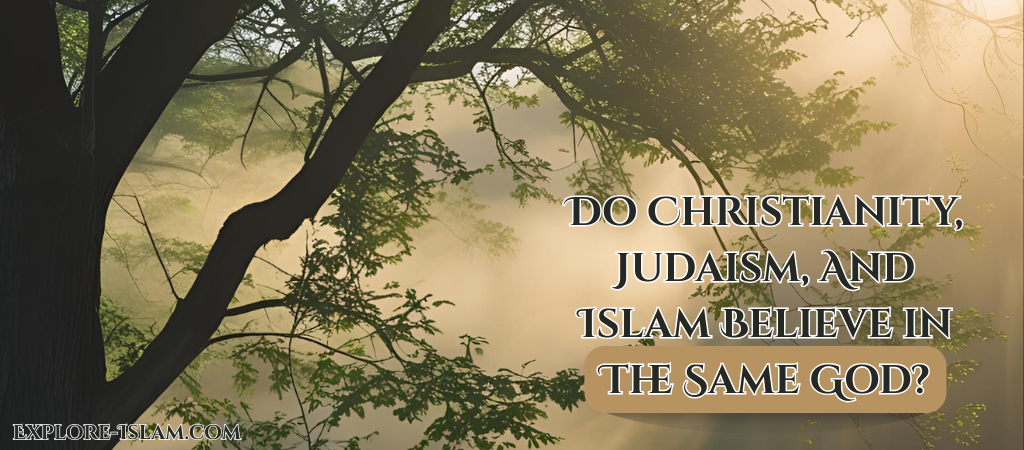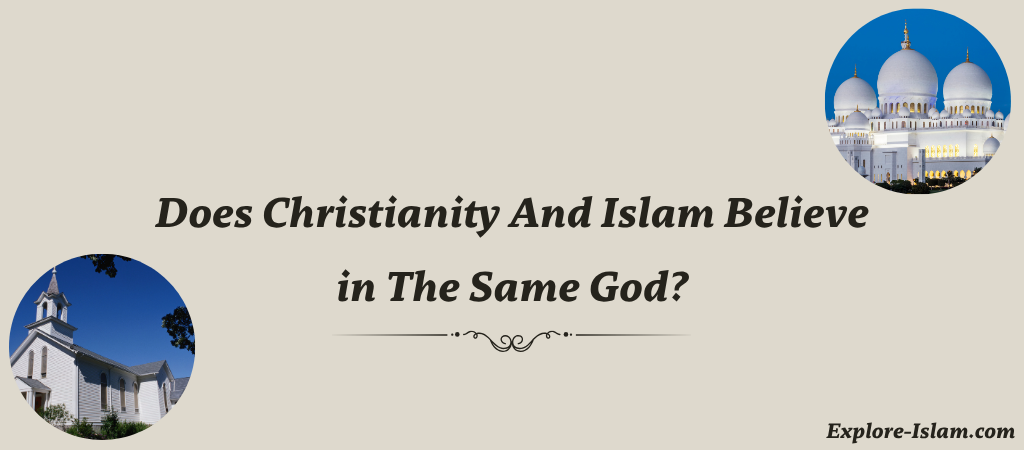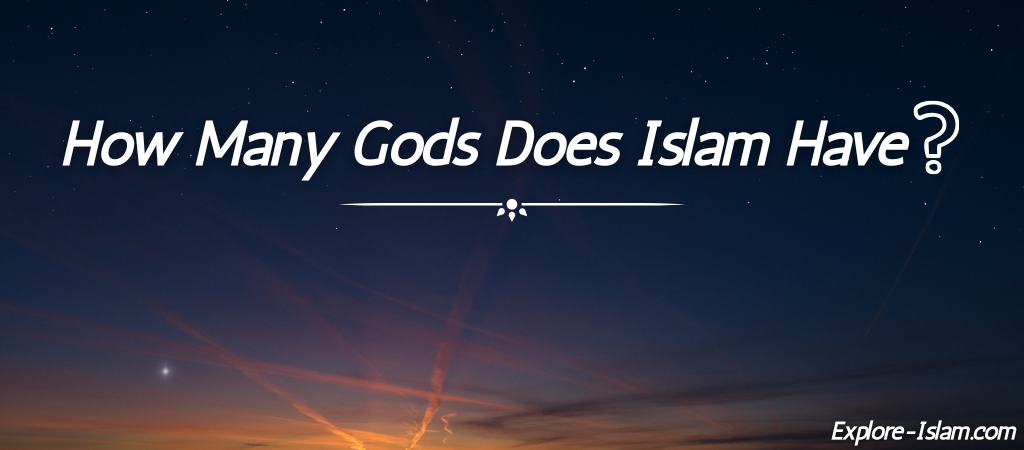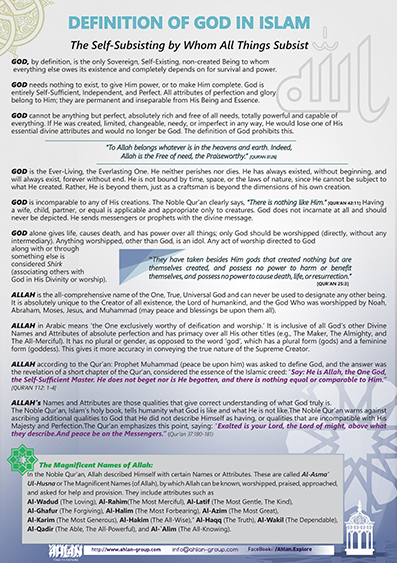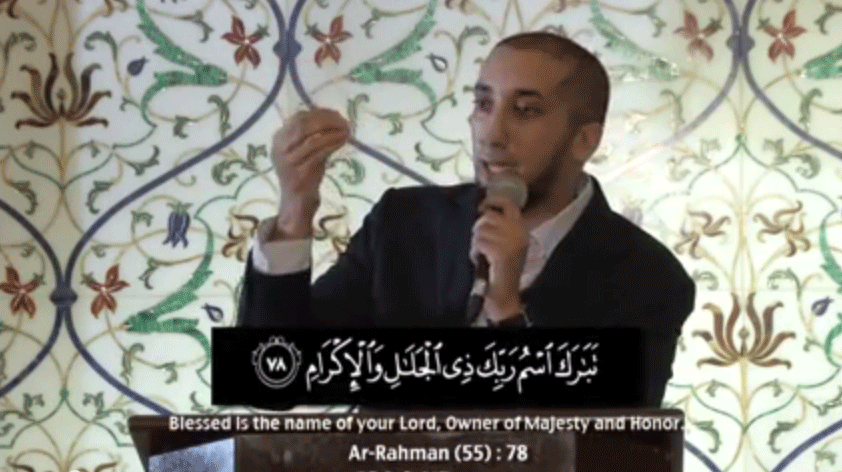Wondering does Islam believe in God and what makes the Islamic view of God so unique? This article uncovers the core beliefs about God in Islam, revealing a concept of the Almighty that stands far above any human-like resemblance—with Divine Attributes of Oneness, Perfection, Mercy, and Majesty that inspire sincere hearts to love Him and follow His final message: Islam.
You’ll also learn that God in Islam is not exclusive to Muslims. Anyone who believes in the One Unipersonal True God with these pure, unchangeable Attributes is, in essence, believing in the same Almighty. Islam doesn’t invent a new deity—it restores the correct understanding of the One True God shared by all Prophets (PBUT).
Keep reading to discover what sets the Islamic belief in God apart!
Does Islam Believe In God?
Yes, Islam believes in One Only True Unipersonal God for the universe and sets a unique concept and Attributes that elevate God beyond His creation and help the believers to achieve their happiness through worshipping their Almighty One God, Whom they can directly connect to, confess their needs, and ask for guidance. Additionally, God in Islam is not limited by time or place, nor is He classified by gender. The use of the masculine pronoun when referring to God is a matter of honor and respect, following the conventions of the Arabic language.
What God Does Islam Believe In?
Islam believes that there is only one true God for all people, governing their affairs. Even those who worship false gods or make allegations are still under His control. God in Islam is not the God of Muslims only. Instead, God possesses a group of rational divine attributes (oneness, superiority, and uniqueness in attributes with no resemblance to humans). Anyone who believes in a God with these attributes is, in fact, believing in the same God.
The proper Name of Almighty One God is Allah, and this doesn’t mean a unique, exclusive God for Muslims. Instead, it is the proper name for Almighty God used in Arabic even before the emergence of Islam. The name ‘Allah’ was also used by Christian Arabs and appears in the standard Arabic translation of the Bible to refer to Almighty God.
The following article discusses the essential attributes that any alleged god must possess to truly deserve worship and divinity. It also examines the flaws or limitations in other claimed gods that disqualify them from being divine. Refer to it for deeper insights: Who Is The Real & True God In The World?
Read also: The Name Allah – Meaning, Root, Significance and More!
Main Islam’s Beliefs About God
Islam provides a unique concept for the Almighty One God, making Him the only One deserving to be worshipped rationally. By tracing the description of Almighty One God in His final Divine Book, the Quran, we find the following beliefs and attributes about Almighty God:
God In Islam Is Only One – No Wife Or Offspring
Belief in a unipersonal One God is a pillar of Islamic belief. God in Islam is One with no wife, son, or equivalent. This fact is repeated many times in the Quran. For example, Almighty God stresses His Oneness, saying:
“Allah! There is no god ˹worthy of worship˺ except Him, the Ever-Living, All-Sustaining.”
Also, Almighty God negates the existence of a son, supporting this belief with a rational example in the following verse:
“Allah has never had ˹any˺ offspring, nor is there any god besides Him. Otherwise, each god would have taken away what he created, and they would have tried to dominate one another.”
Belief in God’s Oneness is the first half of the testimony of faith, the gateway to enter Islam.
Read also: Is Jesus a god?
God Is Perfect And Unique With No Resemblance
Islam sets a unique perception of Almighty God, making Him beyond the resemblance of any of His creations. Any deviation in describing God comes from resembling Him to His creation, such as the allegations of family or any negative qualities set in a man-made perception of God. Almighty God stresses His Uniqueness in the Quran, saying:
“There is nothing like Him.” [Quran, 42:11]
Thus, any god resembling humans in needs and shortcomings, such as the need for sleeping, eating, or the like, can never be God by reason.
Read also:
God In Islam Is High In Essence And Attributes
God in Islam is High in Essence—He is distant from His creation and is not incarnated in any of His creation. Also, Almighty God has the Highest and Noblest Attributes. Out of His Mercy, Almighty God informs us through His Revelation of these Names and Attributes to help us improve ourselves in this test of life. Among these Names and Attributes of God are:
- Al-Wadud (The Affectionate)
- The Eternal Refuge (As-Samad)
- Guardian (Al-Walee)
- Al-Jawwad (The Most Generous)
- Ar-Rahman (The Entirely Merciful)
- The Exalted in Might ‘Al-Azeez’
- Al-Fattah — The Opener
God’s Provision Is Not Restricted To Believers
The All-Merciful God provides all His creation in this worldly life, even those who don’t believe in Him. Prophet Muhammad (PBUH) describes the general provision of Almighty God, saying:
“None is more forbearing in listening to the most irksome things than Allah, the Exalted. They associate rivals with Him, attribute sonhood to Him, but in spite of this He provides them sustenance, grants them safety.”
Still, in the afterlife, Almighty God punishes those who didn’t believe in Him and His final Messenger, Muhammad (PBUH), with eternal Hell.
Read also:
Almighty God Is The Absolute Source Of Control And Knowledge
Islam presents God as the Absolute Source of Knowledge, Wisdom, Might, Provision, and Control. He is the Absolute Controller and Sustainer of the world—no one intercedes except by His Permission.
God’s Ultimate Knowledge
Almighty God has Knowledge of past, present, and future. Also, no one knows anything except by His Permission:
“He ˹fully˺ knows what is ahead of them and what is behind them, but no one can grasp any of His Knowledge—except what He wills ˹to reveal˺.”
Also, preservation and accounting of creation is an easy task for God. His Knowledge goes to every single detail in His creation, as mentioned in the following verse:
“He knows what is in the land and sea. Not even a leaf falls without His Knowledge, nor a grain in the darkness of the earth or anything—green or dry—but is ˹written˺ in a perfect Record.”
God’s Ultimate Control of Creation
God creates everything, and to Him is the final return for accounting. Also, nothing in this universe happens except by Almighty God’s Permission. Still, He gives humans freedom of choice, with prior and post Divine Will for the human will to happen. As Almighty God says:
“But you cannot will unless Allah wills.”
Read also:
God Sent Humanity Messengers And Divine Books For Guidance
God sent many Prophets and Messengers with Divine Books throughout history to guide people to His Path. The final of those is the Quran, revealed to Prophet Muhammad (PBUH). Almighty God clarifies the purpose of sending Prophets, saying:
“˹All were˺ Messengers delivering good news and warnings so humanity should have no excuse before Allah after ˹the coming of˺ the Messengers.”
Also, Muslims are required to believe in all Prophets and Divine Books—in their original form—sent by Almighty God. Still, Islam believes that the final message of the Quran abrogates the validity of all previous divine books. Almighty God says in the Quran that Islam is the only accepted religion after the coming of Prophet Muhammad (PBUH):
“Whoever seeks a way other than Islam, it will never be accepted from them.”
Humans Can Directly Connect With Almighty God
Almighty God is near to His creation by His Knowledge. Everyone can directly raise their hands and ask God for their needs and forgiveness for all their sins. There is no need for intercessors between us and Him to confess:
“When My servants ask you ˹O Prophet˺ about Me: I am truly near. I respond to one’s prayer when they call upon Me. So let them respond ˹with obedience˺ to Me and believe in Me.”
Read also:
- Why Aren’t There Any Mediators between God And His Slaves in Islam?
- Allah Loves Hearing Your Supplication
To sum up, Islamic beliefs in God represent a high and perfect model of Divine Essence and Attributes that aligns with human reason and common sense, with no resemblance to human shortcomings or limitations. There are two main places in the Quran referring to the main beliefs about Almighty God: verse 2:255 and chapter 112.
Read also: What Is Islam Religion?
Conclusion
To conclude, Islam believes in only One God—the Creator of the universe—who possesses a perfect, high, and unique Essence and Attributes with no resemblance, rival, or family. This article has addressed the question, “Does Islam believe in God?”, by outlining the core Islamic beliefs about God as described in the final revelation, the Quran.
God in Islam is not exclusive to Muslims. His proper name, Allah, was known among Arabs—including Christians and pagans—even before Islam. Islam came to correct misconceptions about God and guide people to worship Him in the way He wills for His servants.
To gain a deeper understanding of God in Islam, read the Quran—the direct speech of Almighty God about Himself. By doing so, you’ll discover profound and fascinating Divine Attributes that leave no space in the heart except to love, revere, and follow Him through His final revelation to humanity: the Quran.
Also, our team is ready for your questions about God in Islam or any related topic about Islam. Send your question right now!



